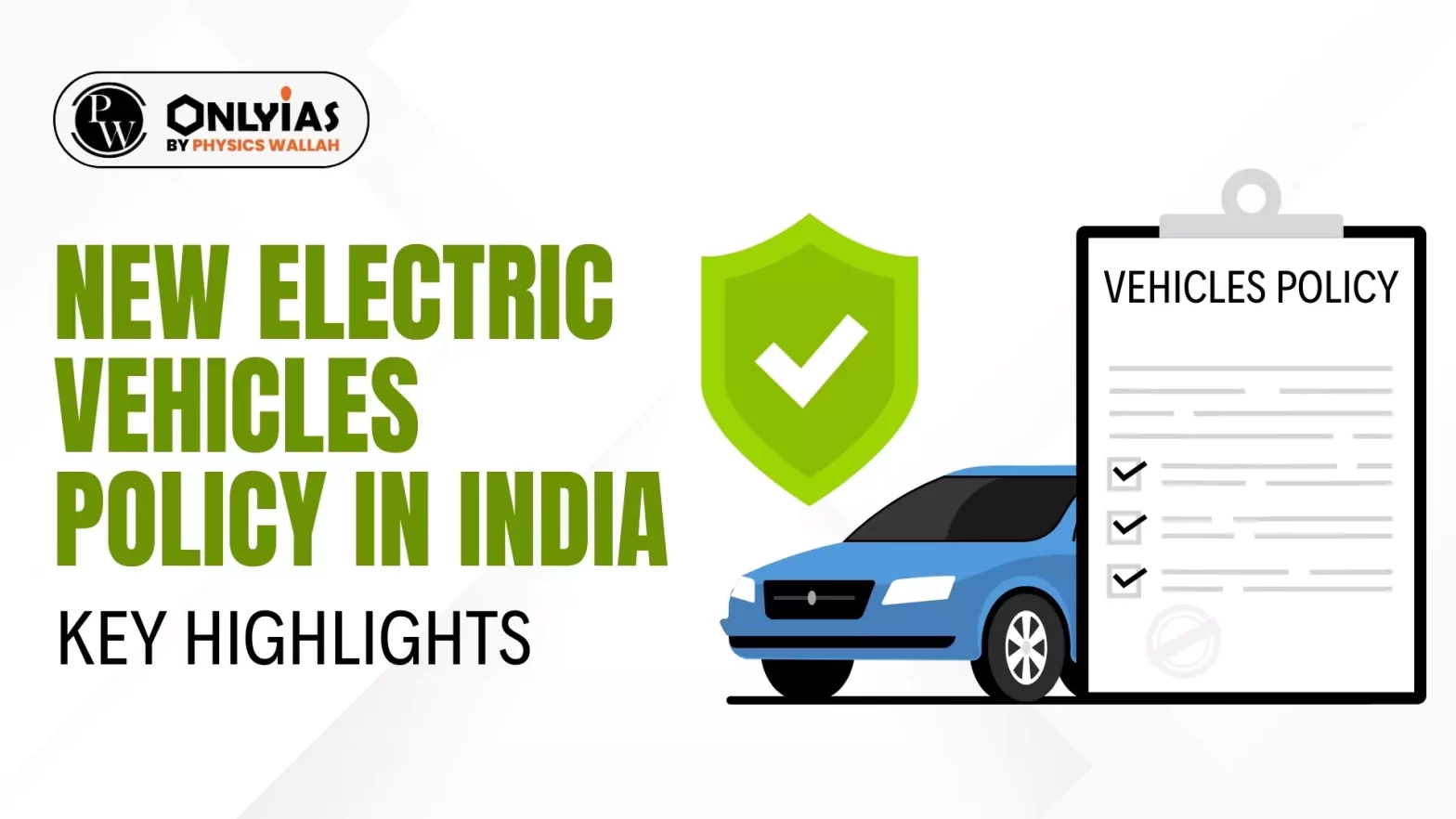![]() 20 Mar 2024
20 Mar 2024

Government’s new electric vehicle policy seen as a major incentive for the sector.
| Relevancy for Prelims: Fame India Scheme, Parliamentary Panel Recommends FAME India Phase II, Critical Minerals, Hybrid Vehicles, and Introduction Of Electric Mobility Promotion Scheme 2024.
Relevancy for Mains: Governance policies and interventions for development in various sectors and issues arising out of their design and implementation. |
|---|
Tesla Plant in India: Elon Musk’s Tesla to Set up Its First India Factory in Gujarat
|
|---|
| Prelims PYQ (2023):
About three-fourths of world’s cobalt, a metal required for the manufacture of batteries for electric motor vehicles, is produced by (a) Argentina (b) Botswana (c) The Democratic Republic of the Congo (d) Kazakhstan Ans: (c) |
|---|
| Must Read | |
| NCERT Notes For UPSC | UPSC Daily Current Affairs |
| UPSC Blogs | UPSC Daily Editorials |
| Daily Current Affairs Quiz | Daily Main Answer Writing |
| UPSC Mains Previous Year Papers | UPSC Test Series 2024 |
<div class="new-fform">
</div>